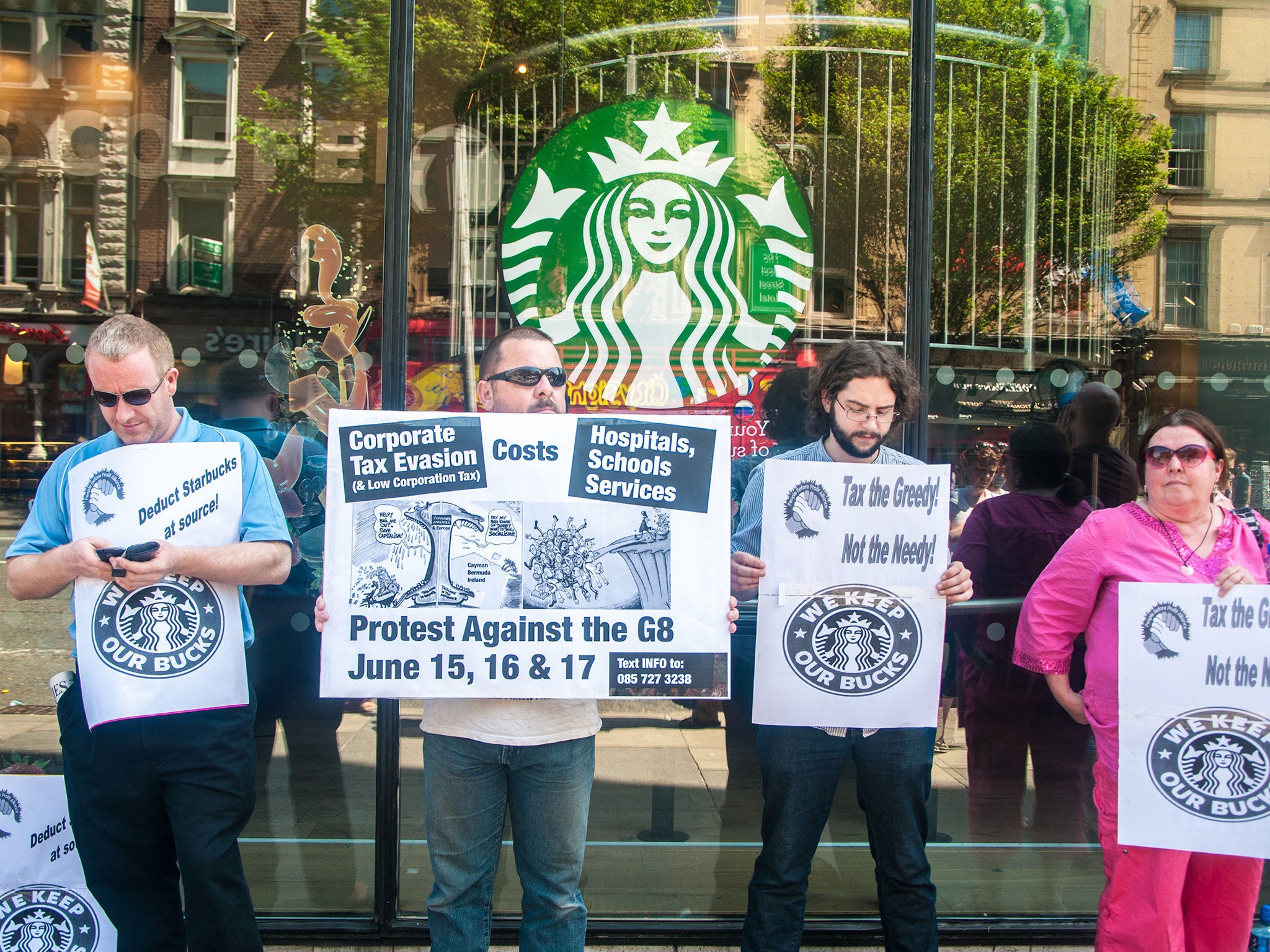Johnson Controls and Tyco: New American 'inversion' deal highlights Ireland's tax haven status
An 'inversion' is where a US company buys another one in a low-tax jurisdiction in order to shift its domicile there

Ireland’s status as a tax haven for vast US multinationals has come under fire again, after two huge American manufacturers struck a $20bn (£14bn) merger deal under which the combined business will base itself in Cork and save $150m a year in taxes.
Johnson Controls – a maker of air-conditioners and batteries – will merge with Tyco International, best known for fire-protection equipment.
News of the deal comes just days after Google, which also uses an Irish base to avoid tax, agreed a controversial deal with the UK government to pay £130m in tax. It also follows The Independent’s revelations of the super-low tax payments of General Electric, whose biggest offshore base is in Shannon. The European Commission, meanwhile, is close to ruling on whether Apple must repay up to $8bn of unpaid taxes from its Irish-domiciled business.
Although Johnson is far bigger than Tyco, the deal is being structured so that the smaller company is the buyer. This means it can take advantage of Tyco’s tax base, which it moved recently to Ireland, giving as its postal address an office in Mahon, Cork. Despite being essentially a US company with a US stock market listing, Tyco’s accounts show it was previously registered in Switzerland, before which it was in Bermuda.
As a result of the deal, Johnson will save some $150m in taxes a year. Most of that will be in lost tax revenue to the US, where nearly half of its profit is made, but the more aggressive structure could include losses for taxpayers in Britain, where Johnson has several businesses.
Like many other recent deals, the transaction is what tax planners call an “inversion”, where a US company buys another one in a low-tax jurisdiction in order to shift its domicile there.
Britain’s recently assumed low-tax status famously attracted Pfizer’s attentions to AstraZeneca – a deal which did not end up succeeding, But many more companies have shifted to Ireland, where taxes are even lower.
These tax tricks include the “Double Irish”, where a company sets up two Irish companies to buy from each other via a third company set up in a tax haven destination such as the Caribbean islands. While the Irish government has banned the dodge from the start of this year, pre-existing deals can still stand.
Clark Gascoigne, director of the Financial Accountability and Corporate Transparency Coalition in the US, said: “We are fed up with companies who abandon their home countries to avoid taxes when they benefit from all the resources, education, workforces in countries there.”
He repeated his call for Congress to put a two-year moratorium on tax inversions, but said that senior Republicans were likely to block such a move. Republicans have been using the tax inversion flood in the US to push for lower corporate taxes, which are high by international standards, at 35 per cent compared to the UK’s 20 per cent and Ireland’s 12.5 per cent.
Join our commenting forum
Join thought-provoking conversations, follow other Independent readers and see their replies
Comments